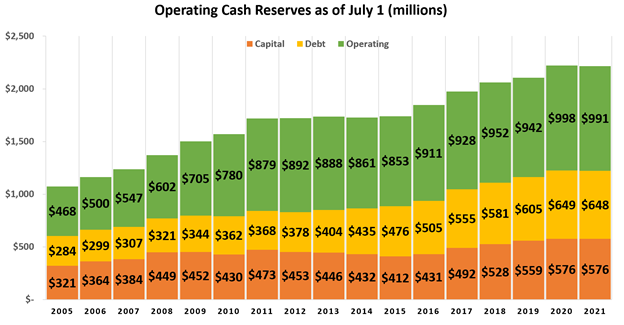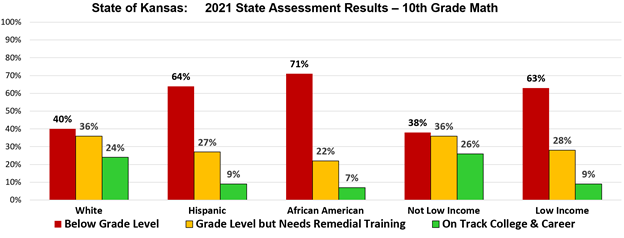The Kansas Board of Education says the Legislature should increase funding for special education by $155 million for FY 2023 because it is not at a statutory level. But KBOE and school districts forget to mention that they have a little over $200 million of unspent funding left over from prior years.
But that isn’t the only issue with the request for more money. The alleged shortfall is based on a back-of-the-envelope estimate of special education spending that is not audited, and Kansas schools have a nasty habit of not spending money according to state law.
School districts collectively began this school year with $201.5 million in the Special Education Fund, and $5.4 million in the Co-Op Special Education fund. Funds operate on a cash basis, just like a checkbook, so the ending balance represents special education funding received in prior years that wasn’t spent.
 School districts also had $783 million left over in other operating funds, and most of that also represents state and local aid received but not spent.
School districts also had $783 million left over in other operating funds, and most of that also represents state and local aid received but not spent.
At-Risk audit: money not spent as required by law
The statutory language regarding state aid for special education says the state will cover 92% of ‘excess’ costs, less federal aid for special ed. The formula presumes that every dollar spent on special education is properly recorded, but there is good reason to question the validity of school districts’ accounting.
A 2019 audit of At-Risk funding concluded that most of the spending they examined “was used for teachers and programs for all students and did not appear to specifically address at-risk students as required by state law.” After a scathing editorial by the Kansas City Star, State Board of Education President Kathy Busch wrote a response that essentially said, ‘shut up, go away, we know what we’re doing.’
That cavalier attitude is certainly not supported in student achievement. Even pre-pandemic results show that local school boards are perpetuating race-based and income-based educational discrimination, and the gaps for at-risk students are getting worse.
 It takes considerable chutzpah for education officials with hundreds of millions in the bank and a bad track record on spending to make yet another demand for more money.
It takes considerable chutzpah for education officials with hundreds of millions in the bank and a bad track record on spending to make yet another demand for more money.
Legislators should conduct a special education audit on spending and all related calculations. And while they’re at it, auditors should re-examine at-risk spending to see if schools are still violating state law.




